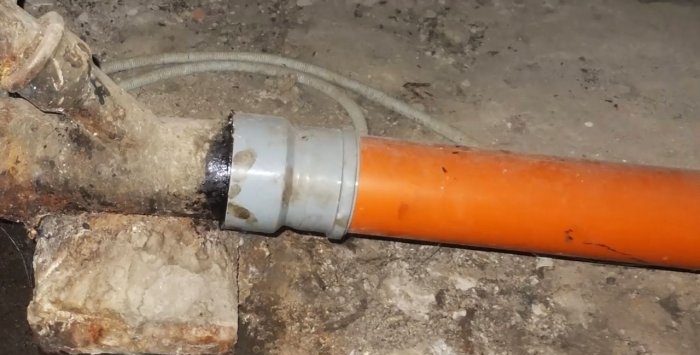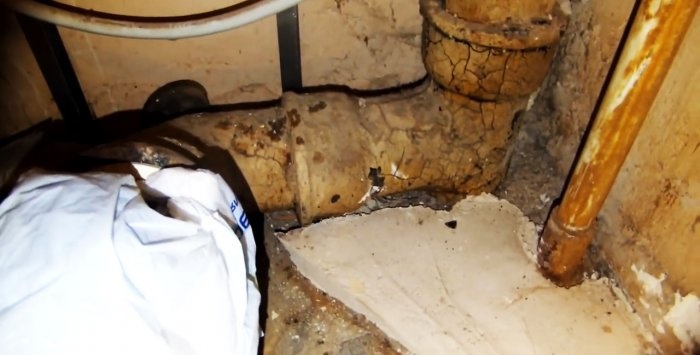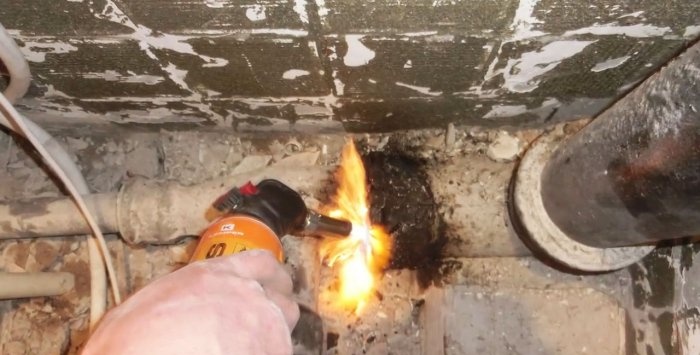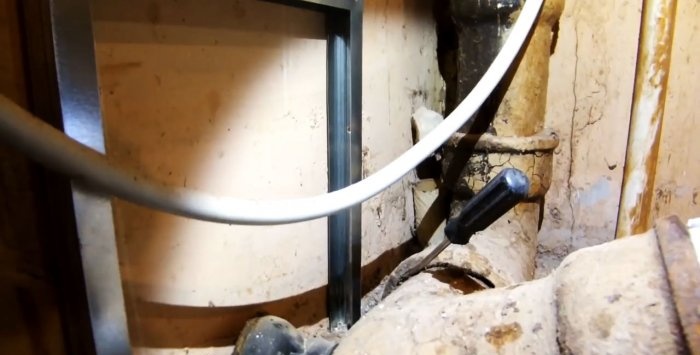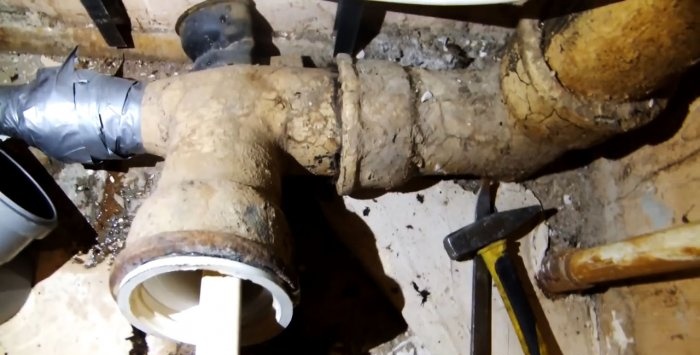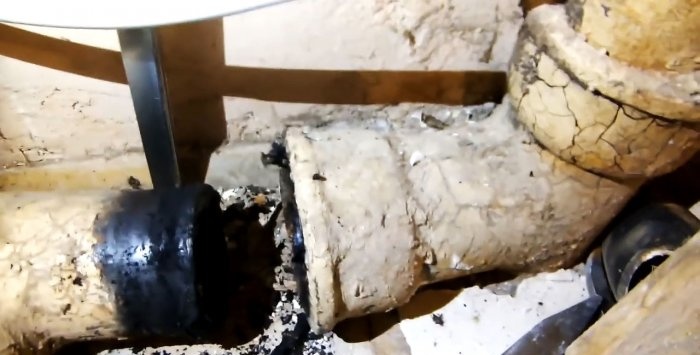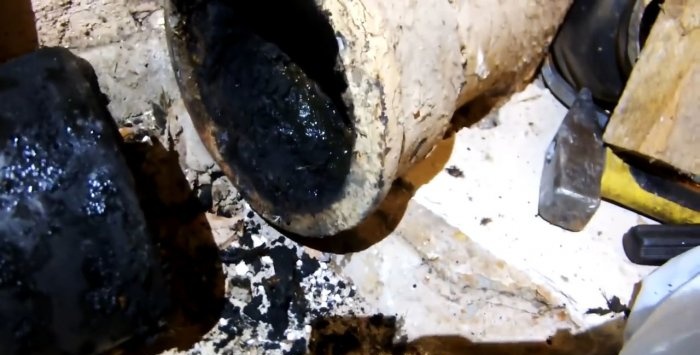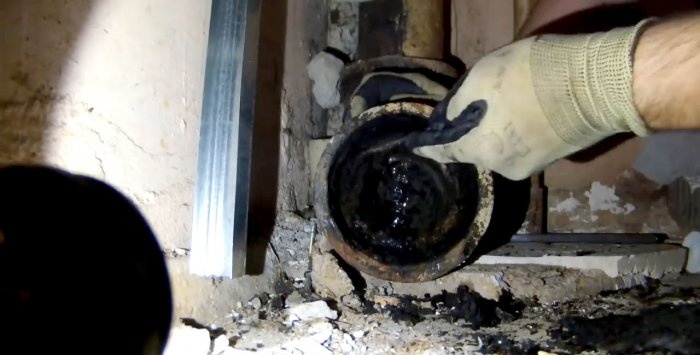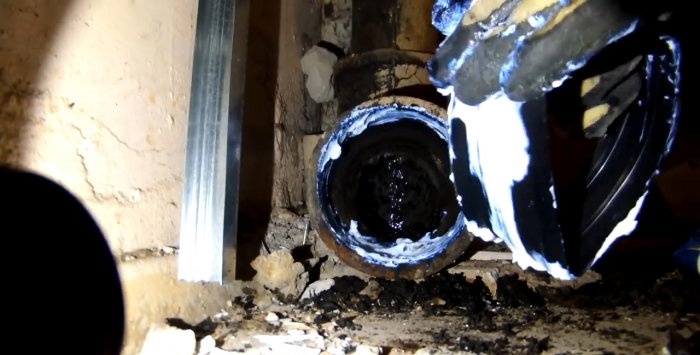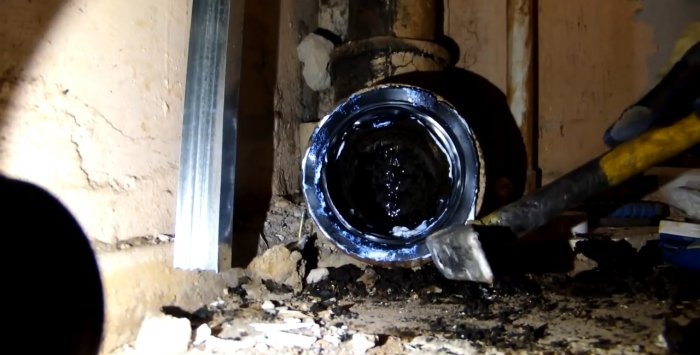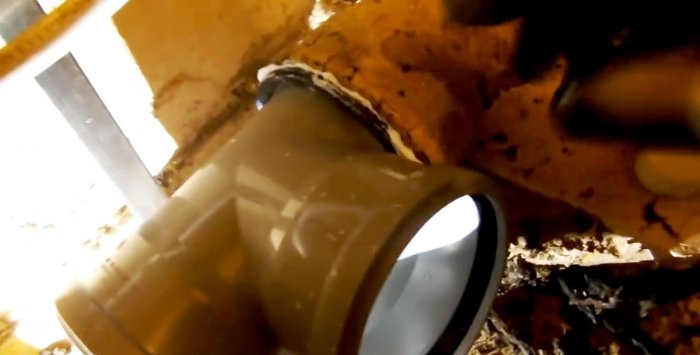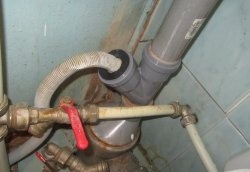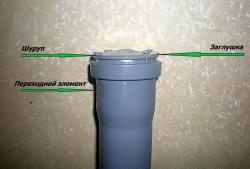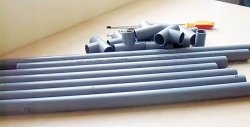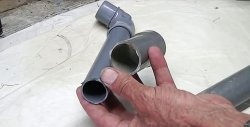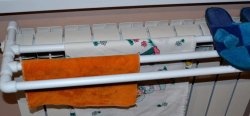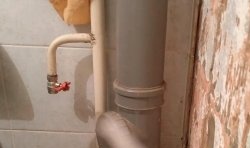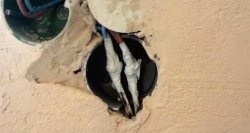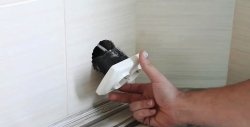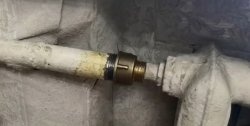Replacing cast iron drainage system with plastic one
During plumbing repair work, it becomes necessary to replace part of the sewer pipe (usually a tee). Instead of the obsolete cast iron pipe, plastic is used everywhere today. I will discuss in detail how to properly make a reliable transition between two different types of pipes in this article.
What you need to have on hand
- Transitional rubber cuff;
- Sanitary sealant;
- Technical Vaseline or silicone grease;
- Hammer;
- Flat screwdriver;
- Mount;
- Knife and brush for metal;
- Autonomous gas burner.
Preparatory work
The process of disconnecting cast iron pipes that have stood for decades is best done together - the fact is that the material is quite fragile, and when disconnecting a part of the sewer system that has failed, there is a high probability of damage to an entire section of the old pipe.
The socket of the cast iron sewer was treated with a special sulfur sealant and flax tow, and the top was covered with cement mortar.The latter is quite easy to knock down using a hammer and a screwdriver, but the sulfur sealant has become as dense in consistency as a cast iron pipe. To remove it, you will need to heat it with a gas burner. The flame should not be directed to one point, but evenly across the entire connection - if the pipe is overheated at one end, then due to atomic expansion there is a possibility that a piece will break off.
At the same time, check the consistency of the sealant - if the filler becomes softer, you should immediately start picking it out. It is best to do this with the same screwdriver, clearing the joint if possible. The main thing is not to rush and perform all actions as carefully as possible.
When operating the burner indoors, provide fresh air and be sure to use protective equipment. Compliance with fire safety rules will prevent possible troubles when working with open flames. At the same time, be prepared for the fact that you will not like the smell of old sealant at the joints of cast iron pipes.
Having freed the joint if possible, begin to loosen the element to be removed. When dismantling the tee, you can use a small lever.
Having gained access to the connecting flange, clean it with a knife and a metal brush, removing any remaining old sealant and wiping the surface dry.
If the work is being carried out in an apartment building, you should prepare a plug for the pipe (a bag of rags, etc.) in case one of the neighbors living above decides to use the sewer.
Installation of the transition collar
The most difficult part of the work was completed. Now you need to install the connecting collar, lubricating it and the pipe flange with sanitary sealant.
Tap the edges of the insert with a hammer to ensure a complete seal.
Lubricate the inside of the adapter with petroleum jelly and install the plastic element of the sewer pipe. The nature of work with a drainage system of smaller diameter completely repeats the steps described above, only the adapter will be of a different size.
If there is no flange connection and you need to connect to a straight-cut cast iron pipe, there is nothing easier, since there are special adapters for this case too. They are mounted directly onto the pipe, and then a new plastic system is installed. Do not forget to treat the connections with sealant so as not to eliminate possible leaks later.
As you can see, the work of replacing a cast-iron sewer with a plastic pipe does not pose any insurmountable difficulties and can easily be carried out independently. The main thing is to observe safety precautions when carrying out work and measure the applied efforts so as not to destroy the remaining cast iron elements.
Watch detailed video
Similar master classes
Particularly interesting
Comments (0)

